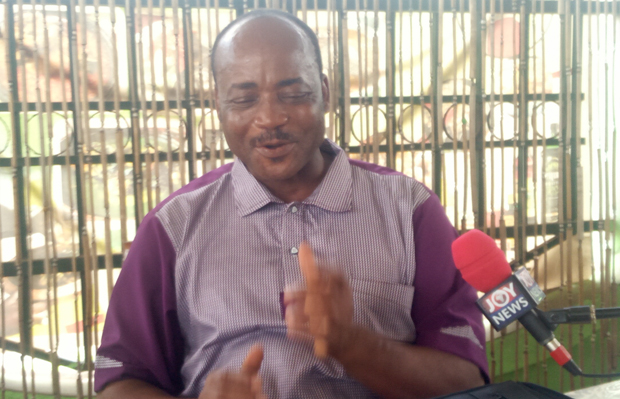Issa Ouedraogo interacting with journalists
Moringa, an investment company that provides equity financing for sustainable agro-forestry projects in sub-Saharan Africa and Latin America, is investing $5 million into B-BOVID to enhance its unique out-grower palm oil polyculture model.
B-BOVID is a farming and palm oil processing enterprise based on social entrepreneurship principles and agro-forestry practices.
The company produces crude and palm kernel from fruits harvested from more than 2,000 farmers.
The company, located in the Western Region, has developed a 110 hectare demonstration plantation, showcasing oil palm agro forestry practices.
It has implemented a comprehensive training structure to promote the best agro-forestry farming models.
The initiative by Moringa would engage up to 4,000 farmers within the next few years.
The investment would also support the modernization of B-BOVID’s manufacturing plant and expand its production capacity to meet the growing demand of the product while improving livelihoods of out growers.
Issa Ouedraogo, the Chief Executive Officer (CEO) of B-BOVID, who disclosed this, mentioned that the agreement with Moringa was in recognition of the international investor of B-BOVID’s credibility as a social enterprise, providing sustainable solutions to deforestation and unemployment in the country.
He disclosed that his outfit was committed to transforming agribusiness in Ghana and called for support from state and non-state actors, particularly the banks to make agriculture attractive to the youth.
Adrein Henry, Investment Director of Moringa, revealed that the cooperation is Moringa’s first investment in Ghana, which reinforces the company’s presence in West Africa.
“We are already working to strengthen the company’s human resources base and increase its overall efficiency while consolidating its position as a leading centre of agro-forestry and livelihood enhancement activities in Ghana and beyond,” he added.
He continued “Following Moringa’s bold investment, we will strive to achieve a sustainable polyculture model around palm oil farming in order to serve both local and regional markets.”
From Emmanuel Opoku, Takoradi


